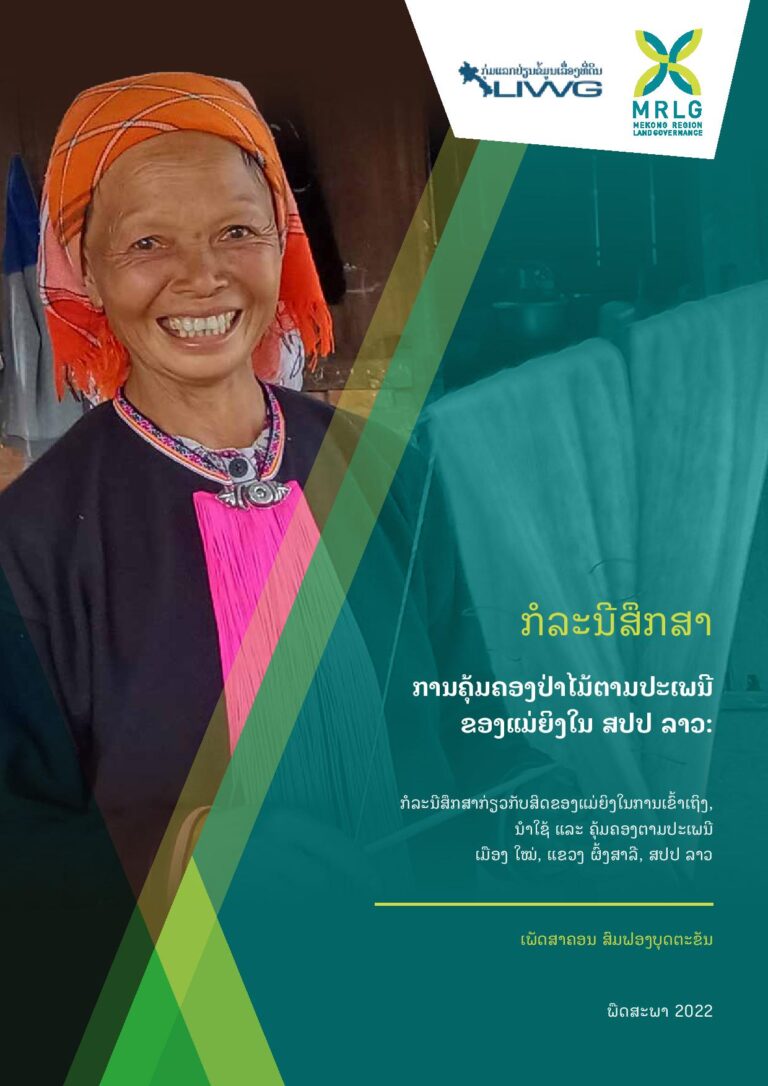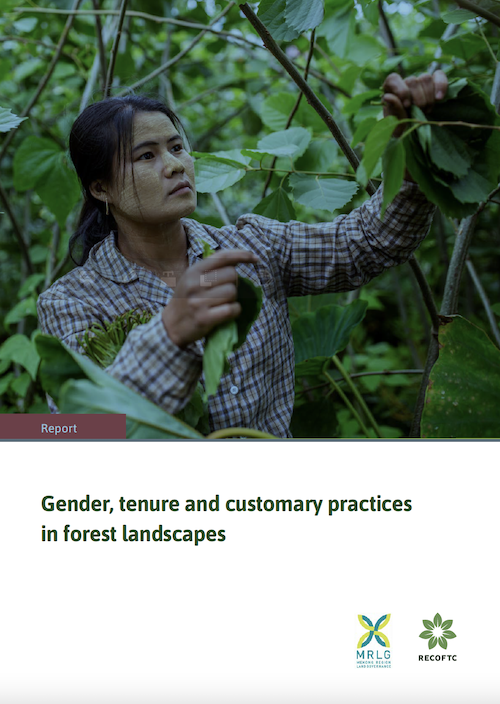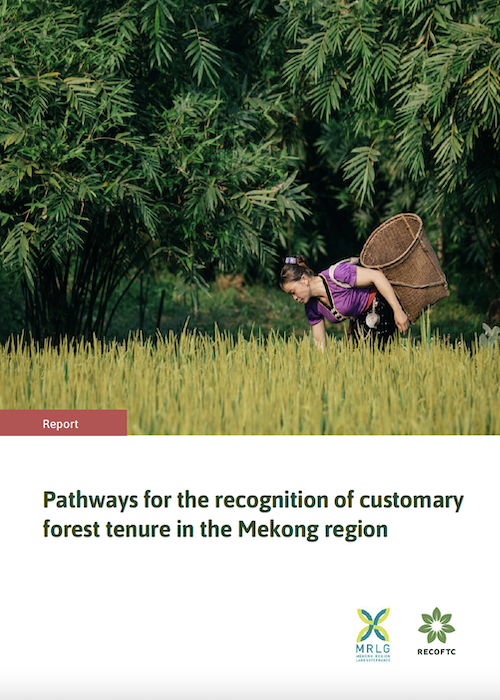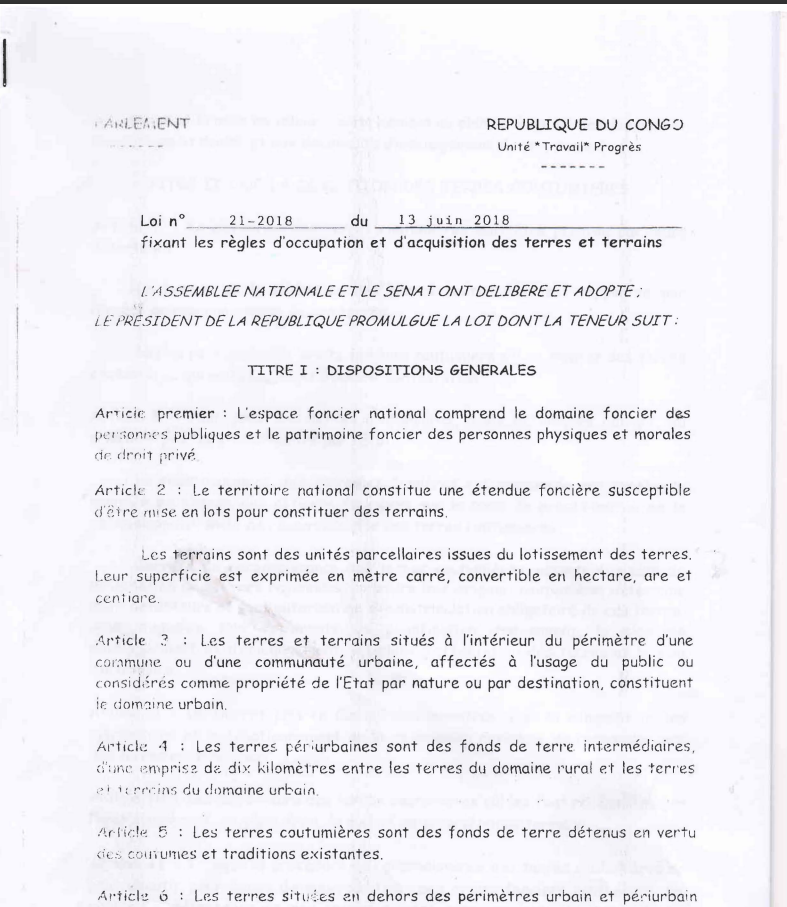customary law
AGROVOC URI: http://aims.fao.org/aos/agrovoc/c_10222
«Nous devons tout abandonner » Impact du barrage de Souapiti sur les communautés déplacées en Guinée
Le barrage de Souapiti, qui devrait à terme fournir 450 mégawatts après sa mise en service en septembre 2020, est le projet d’énergie hydraulique le plus avancé parmi plusieurs nouveaux projets planifiés par le gouvernement du président guinéen Alpha Condé. Le gouvernement guinéen estime que l’énergie hydraulique peut accroître considérablement l’accès à l’électricité, dans ce pays où seule une fraction de la population peut y accéder de façon fiable.
A Glimpse into Women’s Customary Forest Tenure Practices in Lao PDR:Lao Version
The case study explores the intersect between customary tenure systems and gender roles in two villages in Phongsali district in the north of Laos. The country has a diverse population of ethnic communities who depend on forests and other natural resources for their livelihoods. These communities play an important role for conserving complex landscapes. However, their traditional land tenure practices are insufficiently documented and therefore poorly understood, and even more so the gender relations in customary systems.
Women’s Land-Related Human Rights in Mozambique:
Mozambique is a State Party to the Convention on the Elimination of All Forms of Discrimination Against Women, the African Charter on Human and Peoples’ Rights, and the Protocol to the African Charter on Human and Peoples’ Rights on the Rights of Women in Africa. Over the last two decades, the government of Mozambique has developed legal and policy frameworks to align its legislation with core human rights instruments, promote gender equality, and foster women’s land rights. Mozambique has gained considerable international recognition for these important efforts.
Customary Land Rights Act 2022
The Customary Land Rights Act, 2022 (Sierra Leone)
Gender, tenure and customary practices in forest landscapes
This report is based on 10 research projects carried out in 18 sites in seven countries: Cambodia, Indonesia, Lao PDR, Myanmar, Nepal, Thailand and Viet Nam. The studies formed the basis of ten informational briefs from the research sites published together with the report (available here: https://www.recoftc.org/publications/0000432). Each study documented the legal frameworks and customary practices that affect indigenous women’s rights to access and manage forest resources and create restrictions on those rights.
Pathways for the recognition of customary forest tenure in the Mekong region
Globally, about 2 billion people claim ownership of their homes and lands through a customary tenure system. Customary tenure has long been insecure and is under growing pressure in many places. But it is also increasingly recognized through a variety of mechanisms, formal and informal. RECOFTC released a new report on the recognition of customary tenure of communities living in forested landscapes in Cambodia, Lao People’s Democratic Republic, Myanmar and Viet Nam. It also includes a case study from Thailand.
L’agriculture itinérante sur brûlis : quelques pratiques particulières des Pygmées du Gabon et les raisons qu’ils en donnent
Les Pygmées ont intégré les pratiques culturales et les connaissances des Non-pygmées relatives à l’agriculture itinérante sur brûlis mais semblent également avoir mobilisé des savoirs propres concernant le sol et le fonctionnement de la forêt.
Loi n°24 sur le régime de la propriété foncière et des droits coutumiers.
La présente loi fixe la procédure de l’immatriculation de la propriété foncière. Cette procédure consiste dans l’établissement et l’enregistrement d’un titre de propriété appelé titre foncier. Par ailleurs, en ce qui concerne toute terre non immatriculée (vacante et sans maître, à moins que ne soit rapportée la preuve du contraire), elle prévoit la constatation et régime des droits coutumiers par une commission dont la composition est fixée par décret.
Loi 67-25 du 22 juillet 1967 sur la limitation des droits fonciers
La présente loi fixe les modalités et les conditions de l’expropriation de droit commun; l’expropriation des terrains ruraux (absence de mise en valeur); le déguerpissement; alignation-servitudes d’utilité publique; et les cas de constatation des droits coutumiers.






